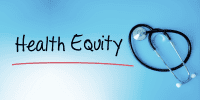Amy Yeager, age 65, is admitted for total hip arthroplasty. Her history includes osteoarthritis of the left hip, gastroesophageal reflux disease, and anxiety disorder. She experiences no problems during surgery or recovery in the postanesthesia care unit.
Assessment hints
At 6:00 the next morning, Mrs. Yeager tells you she has chest pain from one of her anxiety attacks. You note that she appears pale, anxious, and diaphoretic and that she is using her accessory muscles to breathe. Her oxygen saturation is 94%, so you give her 2 L of oxygen via nasal cannula.
She describes her pain as heaviness and rates it a 5 on a 1 to 10 pain scale. She also complains of nausea, and you see a small amount of green vomitus in her emesis basin.
Call for help
Although Mrs. Yeager thinks she is having one of her anxiety attacks, you know you must rule out a myocardial infarction (MI). On closer questioning, she says she has never vomited during an anxiety attack and that her chest heaviness is different. Because she could be having an MI, you activate the rapid response team (RRT). You also have the assistant page the medical resident and the patient’s orthopedic surgeon.
On the scene
The RRT arrives, and you provide Mrs. Yeager’s vital signs: blood pressure, 103/90 mm Hg; heart rate, 90 beats/minute; respirations, 22 breaths/minute. Her breathing remains slightly labored, but her oxygen saturation is up to 98%. The RRT nurse quickly assesses her and orders a stat electrocardiogram (ECG) that shows nonspecific ST interval and T wave changes.
Following the hospital protocol for chest pain, the RRT nurse administers 0.4 mg of sublingual nitroglycerin. Because the pain is not immediately relieved, the nurse repeats the dose in 5 minutes and gives the patient 162 mg of chewable aspirin.
When the resident arrives, Mrs. Yeager describes her chest pain as crushing, and she looks anxious. The resident orders 2 mg of morphine I.V. for the pain, 0.25 mg of alprazolam P.O. for the anxiety, and 6.25 mg of promethazine I.V. for the nausea.
The patient says she is extremely short of breath, and she has buccal cyanosis. Her respiratory rate is 28 breaths/minute, and though her chest is clear, she remains diaphoretic and anxious. The resident orders a computed tomography scan to rule out pulmonary embolism.
Lab results show Mrs. Yeager’s troponin I level is 5.0 ng/mL; hemoglobin, 7.6 gm/dL; and hematocrit, 24.1%. She says her pain is diminishing, and she appears less anxious, but the resident transfers her to the intensive care unit (ICU) for monitoring. Because anemia is a risk factor in ischemic heart disease, the orthopedic surgeon orders a unit of packed red blood cells for her decreased hemoglobin and hematocrit.
Outcome
On admission to the ICU, an ECG still shows nonspecific ST interval and T wave changes. After 1 hour, though, the patient rates her chest pain as a 2, and her ECG and her troponin I level are normal. Later, she has a brief period of sudden, sharp chest pain, but her ECG and troponin levels remain normal. After an echocardiogram, the cardiologist makes a diagnosis of atypical chest pain aggravated by stress, not an MI.
Education and follow-up
As Mrs. Yeager prepares for discharge, she asks you about her chest pain. You explain that chest pain without specific changes on the ECG may result from several causes, including a blood clot in a lung, a heart attack, and an anxiety attack. To be on the safe side, you explain, she should call 911 if she experiences unfamiliar symptoms, such as nausea, vomiting, or unusually severe pain.
Because of your quick action, this patient received the appropriate monitoring and intervention and the correct diagnosis. Though she didn’t have an MI, the only way to find that out was to do what you did.
Visit www.AmericanNurseToday.com/journal for a list of selected references.
Sandy Rankin is a Critical Response Nurse at the University Medical Center at Brackenridge in Austin, Texas.


















